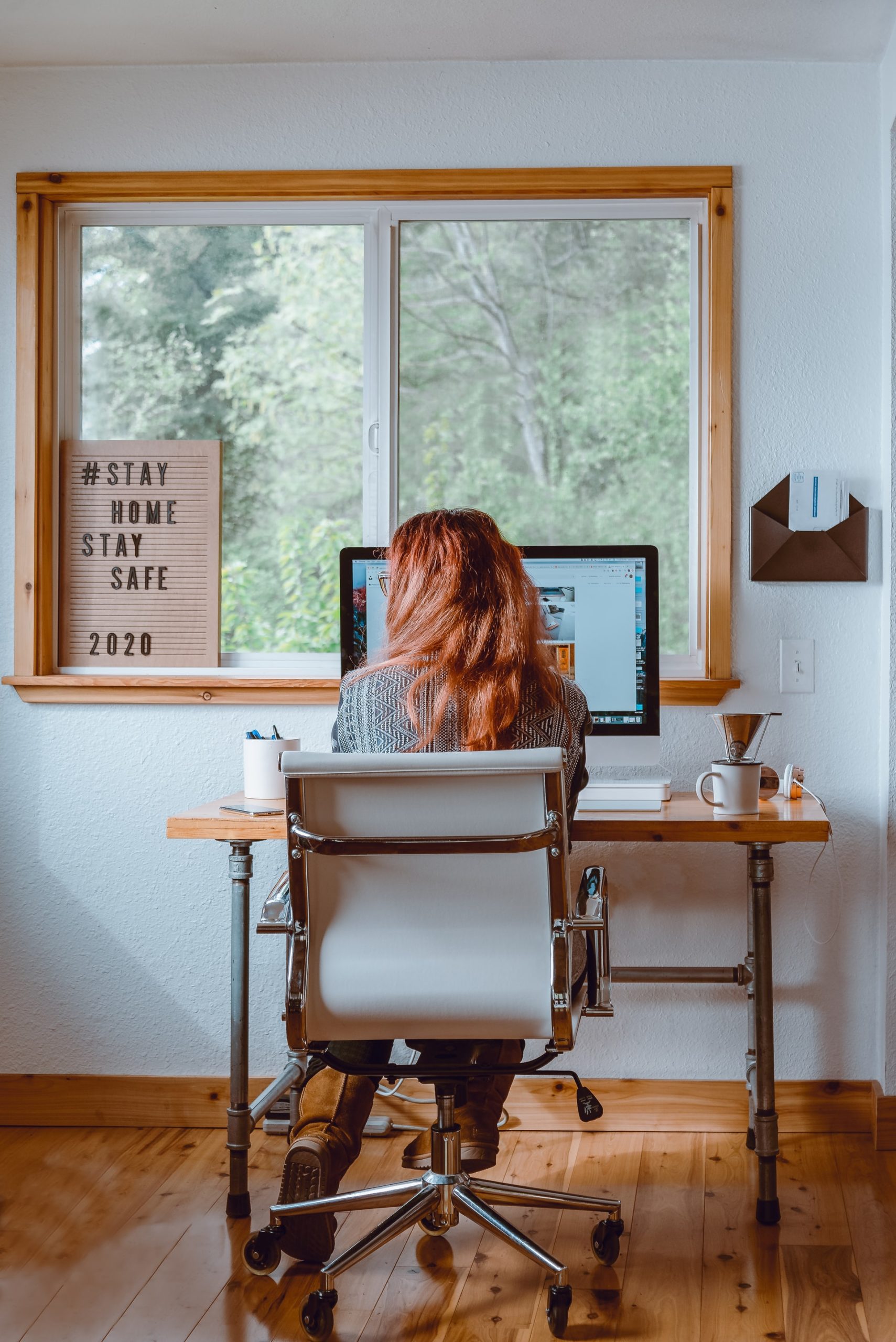We’ve all been there right, tried to start a new hobby in lockdown or decided that we must take up 101 new hobbies and ‘productive’ new rituals to get the most out of home working. Well, it’s exhausting, and quite frankly, we’ve found that there’s too much noise out there. Lucky for you, we’ve gone through all of the top tips for productive working and found the very best ones that have worked for us and those that we know and admire and we’ve collected them below for you to enjoy! Let us know what you think and if they’ve worked for you!
1. Designate a specific workspace.
Studies show that having a specific workspace is important to help you focus. Having a designated spot in your home where you “go to work” can result in less distraction and deeper focus. If you have an actual office in your home, that’s ideal, but since every home is different, you’ll have to make the best use of your available space. Places that can work nicely are a kitchen counter (sit in the same spot each time), the dining room table or a hallway desk.
2. Create a Morning Routine
Deciding you’ll sit down at your desk and start work at a certain time is one thing. Creating a routine that guides you into the chair is another.
A routine can be more powerful than a clock at helping you get started each day. What in your morning routine indicates you’re about to start work? It might be making a cup of coffee before you tackle your to-do list. It might be returning home after a jog or getting dressed. (Wearing pajamas is a work-from-home perk for some, but a bad strategy for others.) Look for an existing habit that you have, like brushing your teeth or coming in from a dog walk, to act as your signal. That way, you can tacke on the new habit of kicking off your workday.
I say “morning routine,” but not everyone who works from home follows a nine-to-five schedule. Yours might be a “getting started” routine at another time of day. Nevertheless, look for an existing habit you have and try to start your work day after it.
3. Take breaks and go outside.
Sun and fresh air aren’t just great for plants; they’re good for you, too. By regularly exercising — even if it’s something as simple as walking — you add an important element to your health. If you have a dog, make that your excuse to go outside throughout the day. Short breaks every few hours can help increase mental clarity and overall productivity.
4. Customize your environment.
While we can’t always control where we get to work, we can control our work environment. Personalizing your workspace in ways that you may not be able to in your corporate office can be fun and a good mental exercise to help you relax.
5. Listen to music.
Since many office environments don’t allow music in your workspace (outside of using headphones), this is another opportunity to create your best working environment. Keep in mind, if sharing with a spouse, roommate or children, that you need to be sensitive to their needs as well. In my home, for instance, we’ve incorporated classical and instrumental music, as studies have shown that these types of music can help increase productivity and keep the mind sharp.
6. Keep regular hours.
This one can be a challenge for many, but keeping meeting schedules and regular calls with your team can help you maintain a regular work schedule. Do not let transitioning from an office to your home stop you from keeping a strict schedule. Did you usually get up and exercise before work? Do you have a set time for lunch? Try to maintain these activities at home, because the more familiar and consistent your work schedule, the better.
7. Take Breaks in Their Entirety
Don’t short-change yourself during breaks, especially your lunch hour or meal break.
There are apps, such as TimeOut for Mac and Smart Break for Windows, that let you set a schedule for when you’ll lock yourself out of your computer. RescueTime also has a pause feature that lets you time 15-minute and one-hour breaks. Don’t need any more apps in your life? Set an alarm or timer on your phone, or mind the time with a standard clock. No matter how you track your breaks, make sure to take them in their entirety. For example, if you plan for an hour break and return to your desk after only 40 minutes, walk away for another 20.
8. Don’t stop socializing.
Socializing is just as important when working remotely as it is in the traditional workplace — maybe even more so. Isolation, disconnection and loneliness can be a bad recipe for your mental health.
9. Find a Buddy
You might find it easier to be productive without your most chatty coworkers constantly buzzing in your ear. But social interactions — even with coworkers — can alleviate feelings of isolation and loneliness. Durham University’s Dr. Thuy-vy Nguyen, who studies the effects of solitude, thinks the psychological effects of working remotely for extended periods is often overlooked or ignored, despite it being an essential factor in our mental well-being and team bonding.
10. Phone detox
After a reasonable day’s work, put away your electronic devices and work tools just as you would store carpentry tools after building shelves or baking ingredients after making a cake. Keeping work reminders out of sight keeps them out of mind and helps you relax and recharge your batteries.
And BREATHE, you’re doing great – we promise! Keep being you and be kind to yourself! It’s been a tricky year so even if you try and do one or two of these top tips, hopefully they’ll help you!
If you have any feedback for us, please let us know at hello@thezensory.com or you can sign up for our upcoming Beta app here which will include lots of wonderful multi-sensory experiences for you to use to help get you into states of increased focus, relaxation, positivity and relaxation in the new normal! Enjoy!


